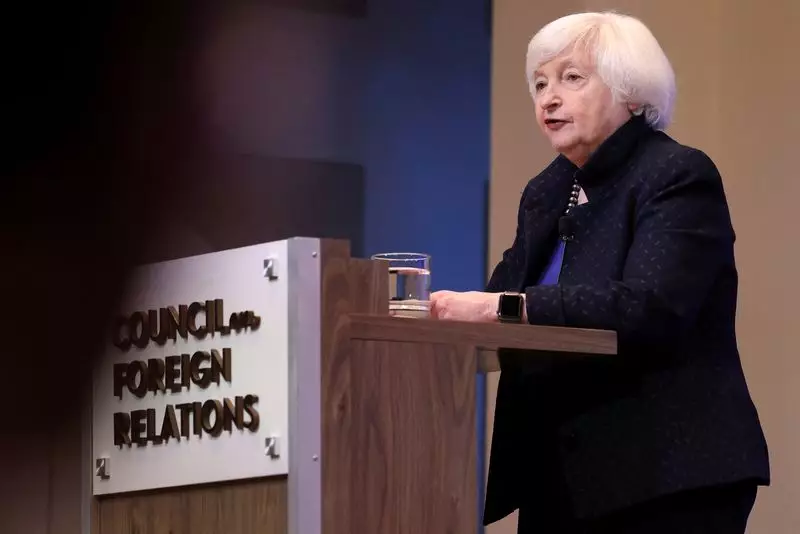In recent discourse surrounding U.S. trade policy, the notion of isolationism has gained traction, particularly among political figures advocating for protective economic measures. Recently, U.S. Treasury Secretary Janet Yellen articulated a compelling argument against such a strategy, underscoring the potential pitfalls of walling off the American economy. This article delves into Yellen’s perspective, presenting a critical analysis of the adverse ramifications of isolationist policies on consumers, industries, and international relations.
One of the key points Yellen highlighted was the detrimental effect that sweeping tariffs could have on American consumers and businesses. Proposals to increase tariffs by 10% to 20% on all imports, with even steeper elevations on goods from specific countries, overlook the broader consequences that such actions would entail. High tariffs act as a tax on consumers, leading to increased costs for everyday goods, effectively reducing purchasing power and overall economic welfare. Moreover, they undermine competition, shielding domestic companies from the pressures of innovation and high-quality production.
Yellen emphasized that the imposition of untargeted tariffs is counterproductive. While the intention behind these tariffs may be to bolster local industries, they often serve to inflate prices across the board, negatively impacting middle- and lower-income families. The resulting economic strain could lead to a paradoxical effect where the manufacturing sector suffers due to a shrinking consumer base.
At the heart of Yellen’s argument is the assertion that a unilateral stance on trade is not only outdated but also detrimental to the advancement of national interests. In an interconnected global economy, cooperation and partnership are vital. The attempt to isolate the U.S. economy through protective policies neglects the complexities of global supply chains that have evolved over decades. Companies today rely on these networks to optimize costs and ensure competitiveness, particularly in industries such as technology and automotive, where efficiency and collaboration are paramount.
Isolationist policies, such as those proposed by certain political leaders, would hinder international trade relationships and provoke retaliation from trade partners, leading to a trade war that could stifle overall economic growth. Yellen argued that fostering healthy trade relations—not tearing them down—is essential for addressing pressing geopolitical issues, such as foreign adversaries and supply chain vulnerabilities.
Yellen’s remarks specifically addressed the complex relationship between the U.S. and China, calling for a balanced approach. While acknowledging the challenges posed by aggressive Chinese industrial practices, she pointed out that trade and investment with China also present significant opportunities for U.S. firms. A blanket disengagement from China would not only hamper American businesses but also deprive consumers of the benefits of lower-cost goods and innovations emerging from collaborations with Chinese manufacturers.
Her appeal for a “level playing field” underscores the necessity of addressing protectionist measures enacted by China, while simultaneously encouraging a cooperative economic environment that could lead to mutual benefits. She called for strategies that defend American interests and stimulate competition, rather than punitive measures that could lead to greater economic isolation.
Janet Yellen’s remarks serve as a critical reminder that, in an era defined by globalization, a reflexive rush toward isolationism can have dire consequences. Instead of reverting to protective policies that stymie economic growth, the focus should shift toward innovative solutions that enhance competitive advantage while ensuring fair trade practices.
As the conversation about the future of U.S. trade policy continues, it is vital for policymakers to heed these insights. A collaborative, strategically engaged approach will not only bolster American competitiveness but also safeguard the livelihoods of American workers, paving the way for a resilient and innovative economic future. In an increasingly complex global landscape, fostering relationships and maintaining open dialogue will be key to navigating the challenges ahead.

